Helle's shock diagnosis came after she’d been complaining of cramps and muscle weakness – but she is determined to beat her grave prognosis.
A super-fit runner diagnosed with motor neurone disease within months of experiencing arm cramp has begun a radical detox – even removing her metal fillings – in a bid to slow the progress of the devastating neurological condition.
Bank worker Helle Hobbis' world came crashing down the day before her 47th birthday in June 2018 when, after suffering for months with muscle weakness, cramp and twitches, doctors told her: "There is no doubt, you have motor neurone disease."

Helle with her children Oskar, Isabel and Sara (PA Real Life/Collect)
Refusing to give in to her grave prognosis and determined to buy as much time as possible with her IT manager-husband James, 51, and children Oskar, 17, Sara, 15 and Isabel, 13, with little help available on the NHS, Helle, of Chislehurst, south east London, has vowed to boost her immune system by detoxing.
Determined to prolong her life, she said bravely: "I don't think I'm going to suddenly wake up fine, all because I took my metal fillings out, but by ridding my body of toxins and bacteria, I’m at least giving my immune system a chance.
"At this point, anything is worth a try. Why shouldn’t I have the right to do whatever it takes to live?"
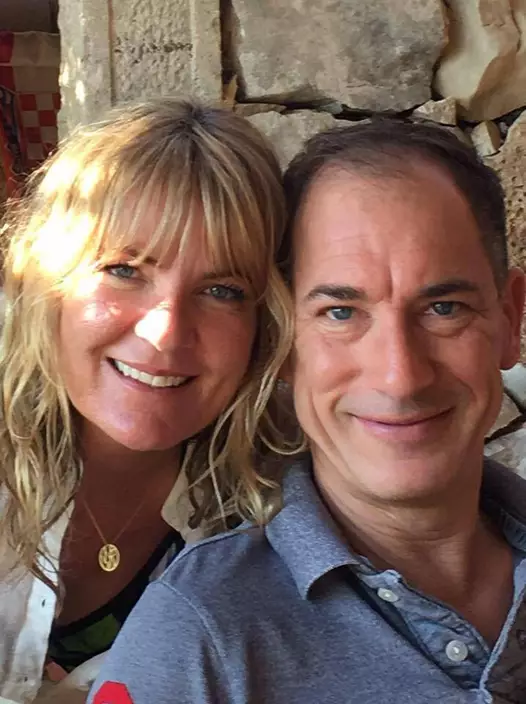
Helle, pictured here with her husband James (PA Real Life/Collect)
She added: "I have to survive for my family. At the moment, their moods depend on mine, and I feel awful for putting them through this, but we are strong, and we don't take no for an answer."
As well as axing sugar, wheat and dairy from her diet, Helle now only eats organic food.
On top of this, she drinks green juices, takes 30 supplements a day and has even replaced the lead pipes and repaired mould damage in her home.

Helle's diagnosis came after she'd been suffering with muscle cramps, weakness and twitches (PA Real Life/Collect)
She is also crowdfunding to help raise money for her ongoing care – which includes a £25,000 stint in a clinic in Frankfurt, Germany, offering groundbreaking immune system treatment.
Jogging 5km every other morning before work, Helle was the picture of health before her diagnosis.
But everything changed in spring 2017 when she found herself struck down by repeated illnesses that were difficult to shake off, with one cold lasting four months.
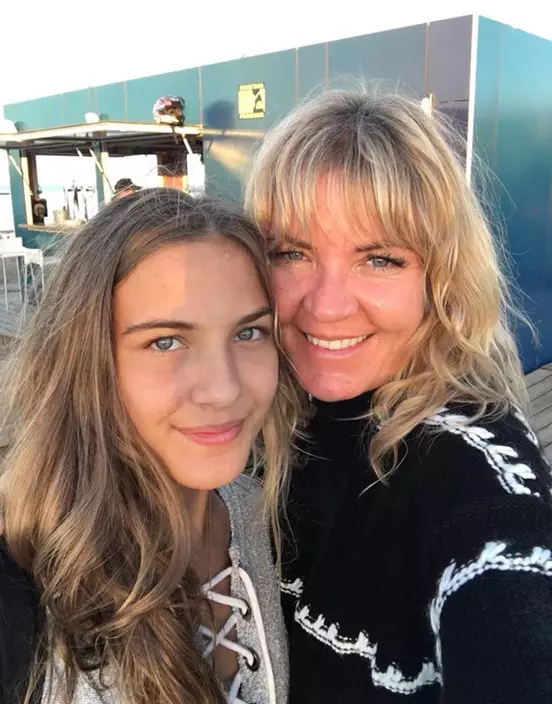
Helle and Sara (PA Real Life/Collect)
She also suffered from arm cramps, which she initially assumed to be a repetitive strain injury from using the computer at work.
"As time went on, I also started getting very high blood pressure, to the point where I stopped running, concerned it might make things worse," she recalled.
Refusing to give in, Helle pushed on – even completing a walking marathon to raise money for mental health.
But things came to a head in November 2017, when she was unable to walk up the stairs at the train station when she travelled into central London for an important work presentation.
She continued: "I called it Bambi on ice syndrome. I felt like if I took one more step, I would collapse.
"I'd grown up in a very fit family, where the thinking was that sport and exercise helped everything. Before, if I ever felt ill, I'd go for a run – but what happens when you are too sick to run?”

Helle after her walking marathon in October 2017 (PA Real Life/Collect)
She added: "I was exhausted, waking up every morning feeling like I'd done a marathon. I’m a strong lady, but I knew at that point that something was very wrong."
Worried, Helle consulted a doctor, who tested her for a number of deficiencies, then referred her to a neurologist when the results came back clear.
By the time her appointment arrived in January 2018, she had already Googled her symptoms and believed in the back of her mind that she had motor neurone disease.

Helle with Isabel (PA Real Life/Collect)
Also known as ALS, the incurable condition, which struck down the late scientist Stephen Hawking, affects the nerves in the brain and spinal cord.
As it progresses, messages from the nerves gradually stop reaching the muscles, leading them to weaken, stiffen and waste.
Investigations included 28 blood tests, CT and MRI scans and a lumbar puncture, before Helle’s diagnosis could be made.

Helle and James (PA Real Life/Collect)
In April 2018, doctors discovered some antibody issues, leading to the suggestion that she had Multifocal Motor Neuropathy (MMN) – where a person’s motor nerves are attacked by their own immune system.
"They told me that it couldn't be cured, but that there were treatments available to keep me strong," added Helle. "I had one round of immunotherapy, which boosts the body's natural defences and, afterwards, while I didn't feel exactly back to normal, there was some improvement.
"But my second bout didn’t work at all, which left me feeling very deflated."

Helle was diagnosed the day before her 47th birthday (PA Real Life/Collect)
Tragically, referred to another neurologist charged with finding out why the treatment was no longer effective, in June this year Helle was told that, rather than having MMN, she had motor neurone disease.
“Straight away, I said, 'I don't want to die,'" she recalled. "But I felt as if the hospital was very limited in what could be done for me.
"There was more talk about how to make me comfortable – but when you're on death row, you don’t just want to be comfortable."
She added: "Left to my own devices, I started doing some research, realising that I wanted to be treated holistically. I didn't want to just be looked at like some sort of rare case study."
Connecting with three other patients, Helle discovered a number of clinical trials being rolled out abroad.
She added: "They do have them in the UK too, but they're far longer term. It's like they're more to benefit neurologists and their understanding, or future patients, whereas I don't have the luxury of time."

Helle with Sara and Isabel (PA Real Life/Collect)
Currently, Helle is taking a drug from Japan designed to slow the progression of her condition, which is administered intravenously every two weeks via a private nurse.
Having read other online testimonies, she has also begun a radical detox in the hopes of improving her immune system, which is currently lower than that of a cancer patient.
"I want to rid my body of toxins, like traces of metal in my body. So, I removed my metal fillings and even replaced the lead piping in my house," she said. “There’s also so many pesticides and the such like in our food, so I've been on a very strict, limited diet. People may think this is hocus pocus, but I want to try."
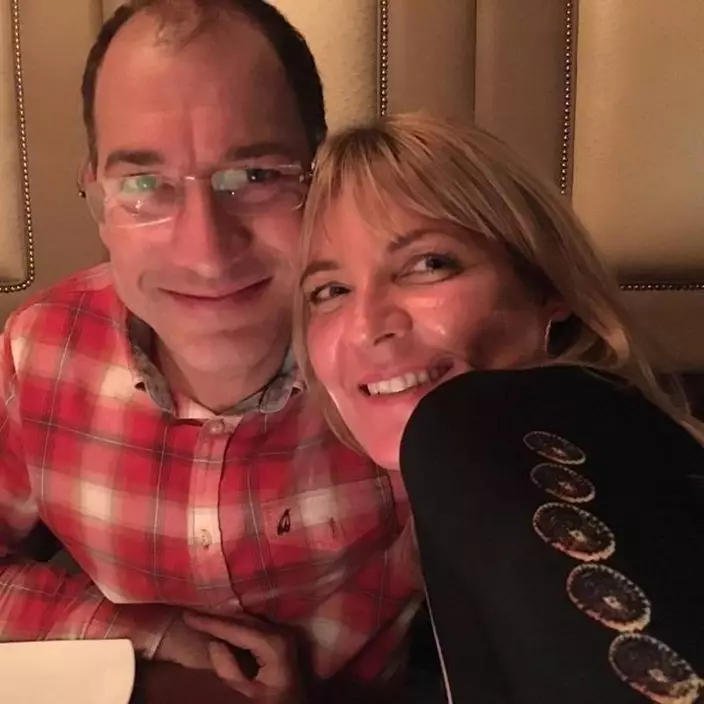
Helle and her husband James (PA Real Life/Collect)
Having set up a GoFundMe page to help with the cost of her ongoing care, Helle has already seen an outpouring of support from kindly strangers based around the world, who have donated more than £30,000.
As well as paying for the Japanese drug Radicut, which costs £3,000 a month, and is believed to slow the progression of motor neurone disease by working as an antioxidant, she hopes the money will fund three weeks at the Infusion clinic in Germany next month, where she will have pioneering immune system treatment.
By speaking out, Helle wants to encourage other patients like her to look into their options and consider treatment overseas.

Helle with her daughters (PA Real Life/Collect)
"It feels very wrong that if you don’t have the money, that's it," she said. "Researching everything has almost been a full-time job, but this is my chance to live, and I will welcome anyone else who needs help with open arms.
"Despite everything, I feel very lucky to have the support I do, and incredibly overwhelmed by how generous people have been to my GoFundMe page.
"I am doing all I can to beat the doctors' dire verdict and see my children grow up, but I often think about all the poor people out there who don’t have the money, the family, the friends to help, who have to just listen to their prognosis and think, "That's it.'"
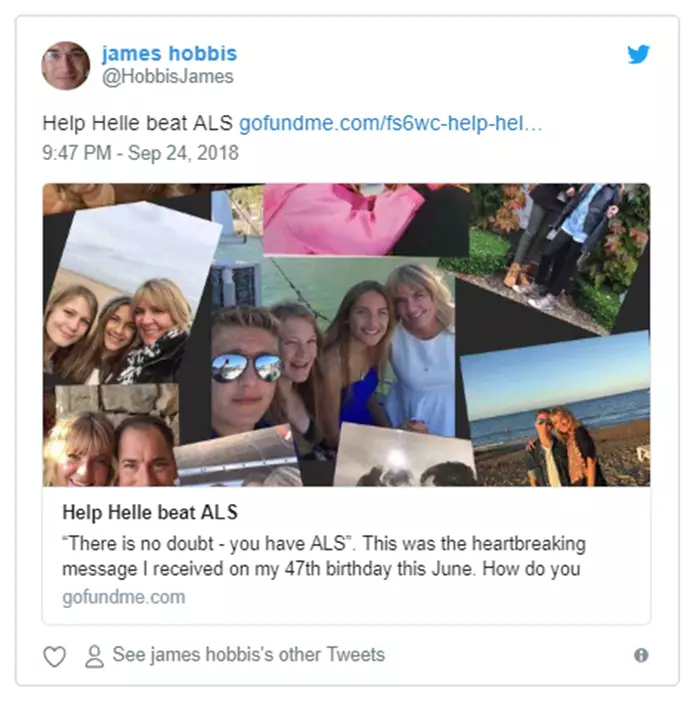
She added: "It shouldn't be this way. All I want now is to help others, but I need more strength myself before I can take on the world."
Medical Herbalist Rosemary Umolu said: "Much research has been done to highlight the benefits of an antioxidant-rich diet. The long-term effects of adopting such diet have been shown to reduce muscle weakness and wasting that's evident in neurodegenerative conditions.
"When properly carried out, detoxification can help to reduce the burden of chemical toxins on the nerve cells, enabling the nervous system to be less prone to rapid ageing."
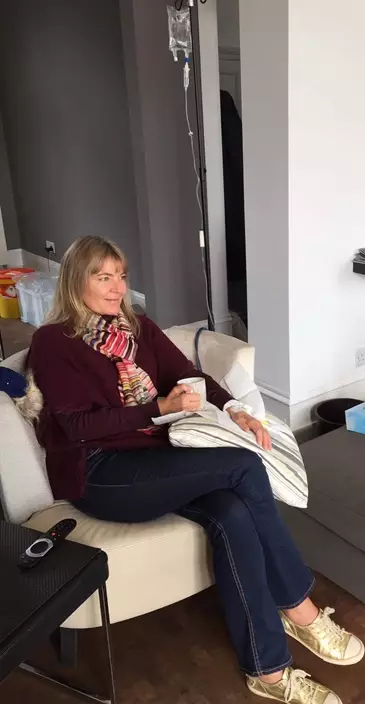
Helle having her Radicut treatment (PA Real Life/Collect)
Head of Research for the MND Association Dr Nicholas Cole said: "As with anyone, we recommend that people with MND look after their health and wellbeing as much as possible. There is currently no treatment or cure for MND, although there has been speculation around a number of unproven treatments.
"MND is likely to be caused by a combination of multiple genetic, environmental and life history factors. There is research going on around the globe to pinpoint the causes of MND and treatment for the disease, including a number of projects based here in the UK, funded by the MND Association.
"There is information available on our website which people may find useful when investigating their options. We also have a support line MND Connect with trained advisers who can signpost people to further information, support and care: tel 0808 802 6262"
To donate to Helle's fund, visit www.gofundme.com/fs6wc-help-helle-beat-als


